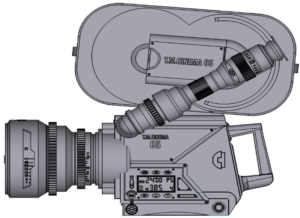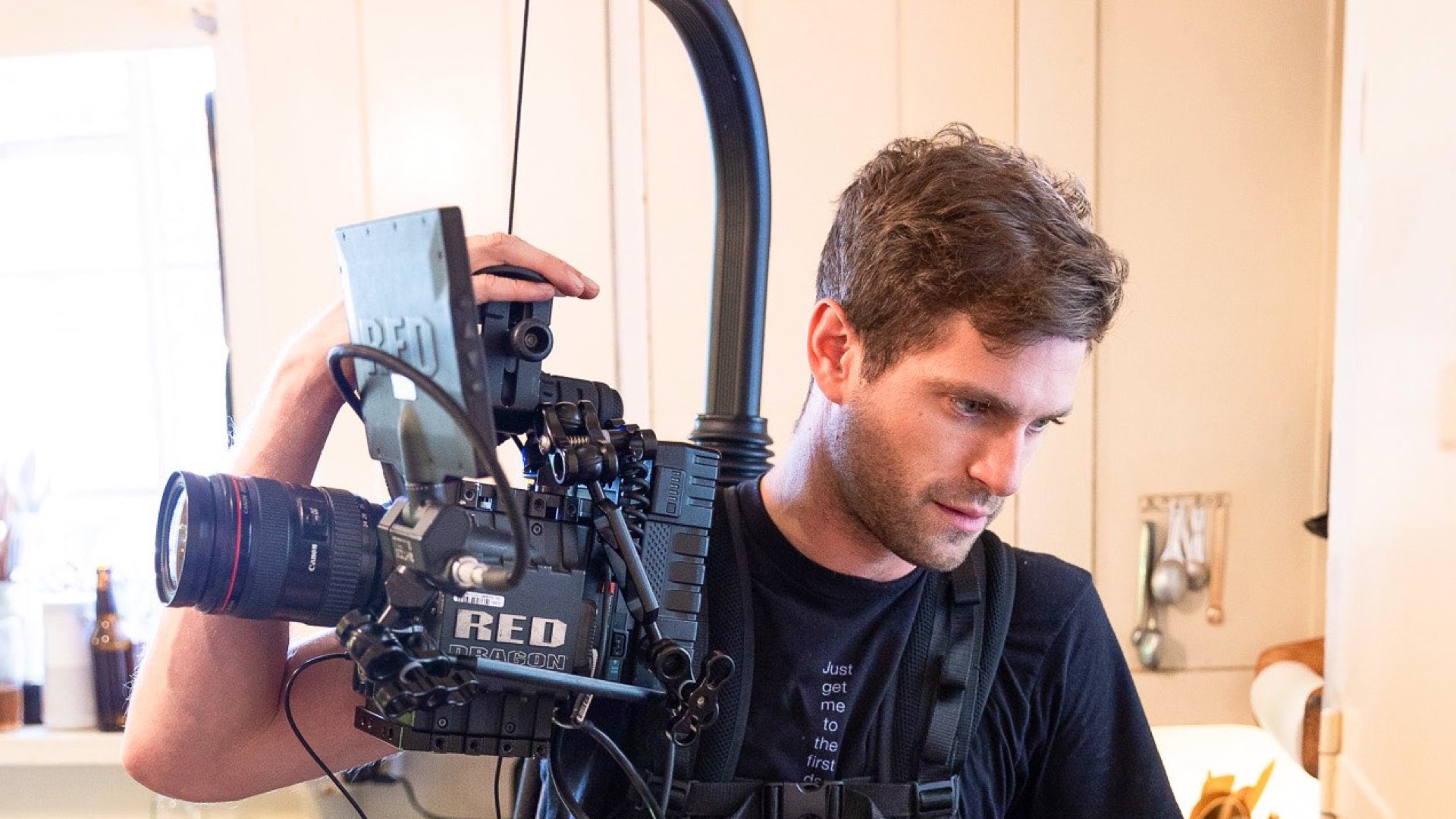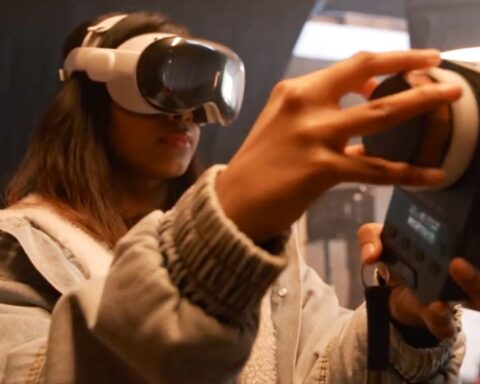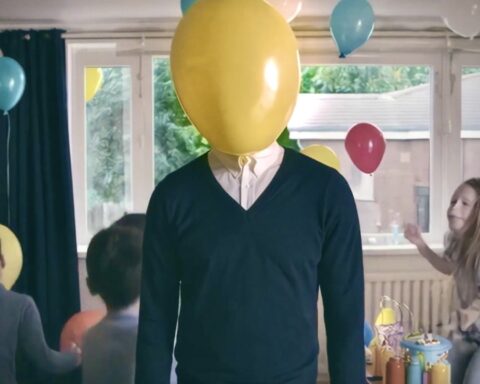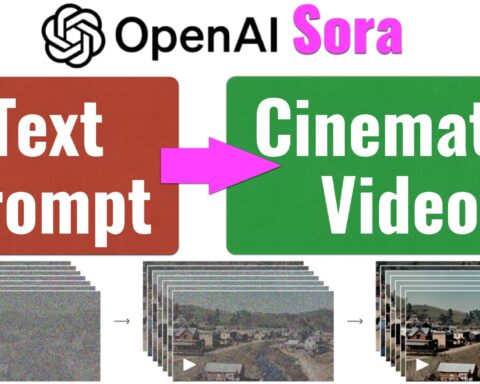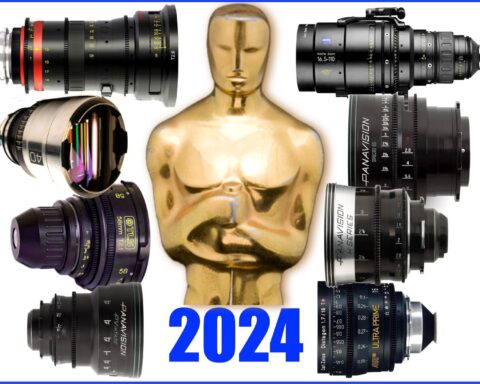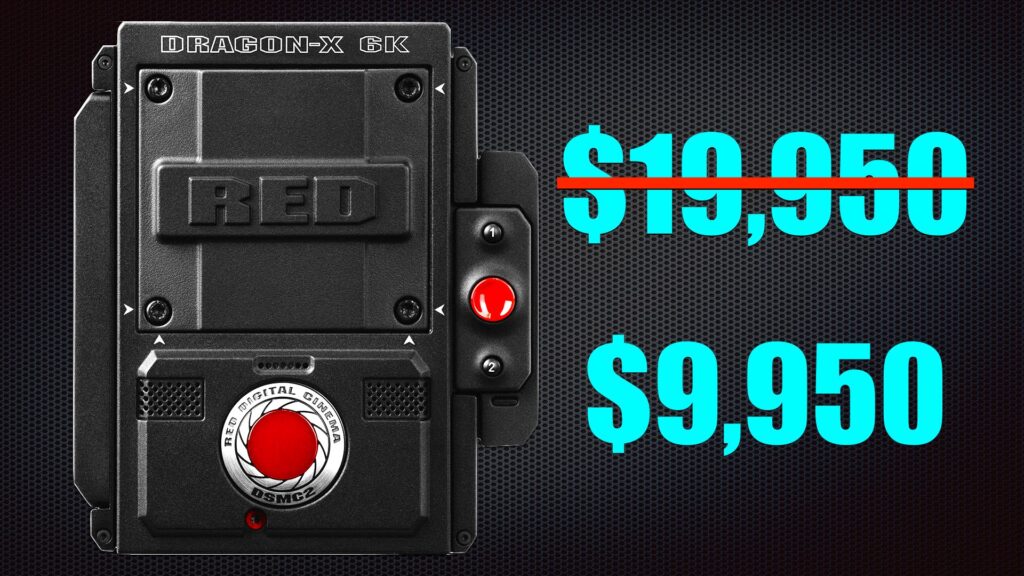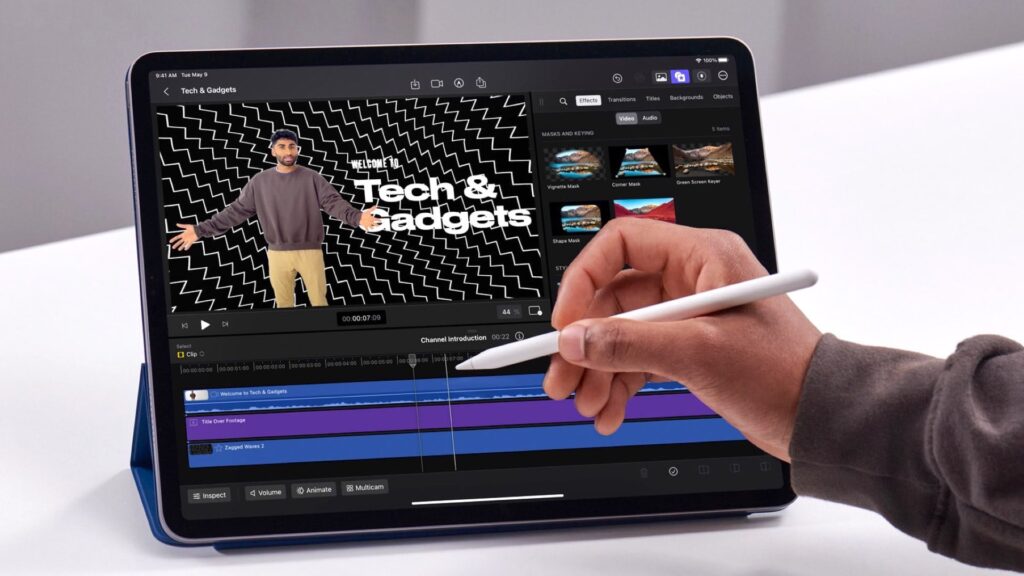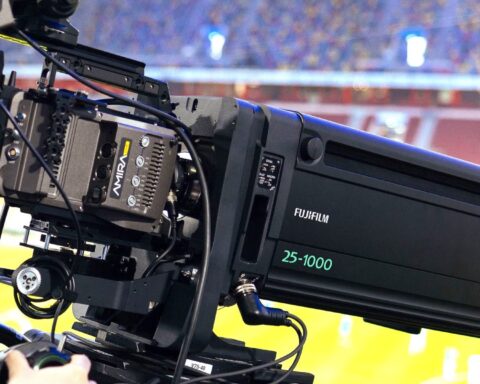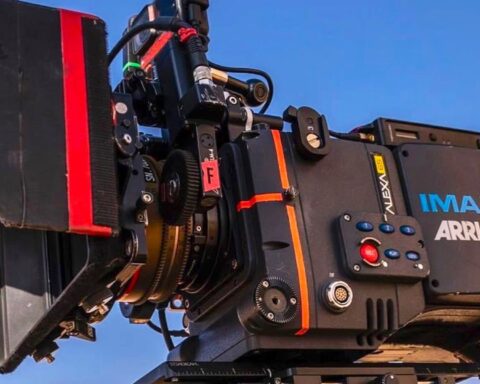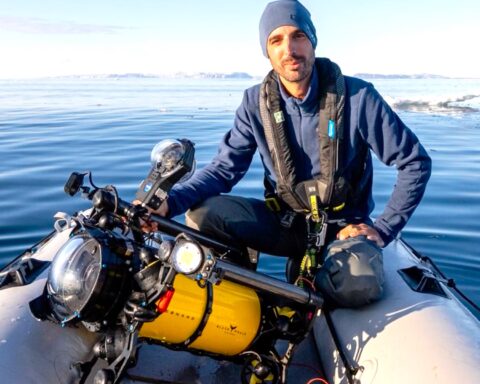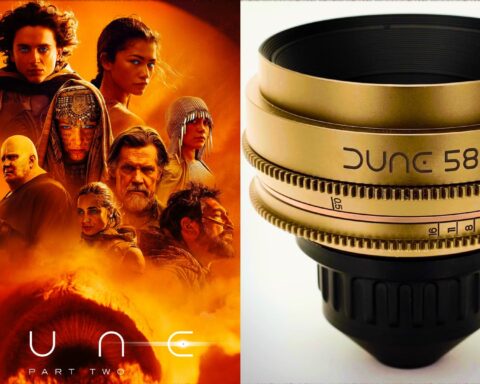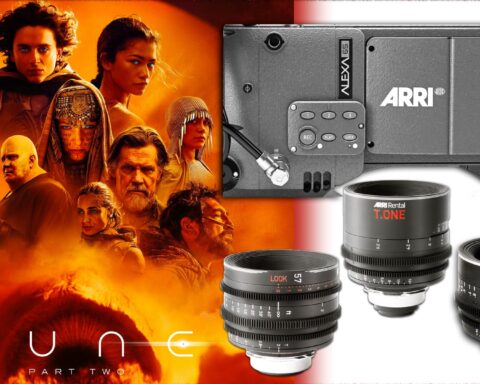In this episode, we interviewed cinematographer and director John De Menil. John shares with us his insights about storytelling, making it into major film festivals, how to choose the right cameras and lenses for the project as an integral part of the pre-production process, and how to direct the characters. Read his thoughts below.
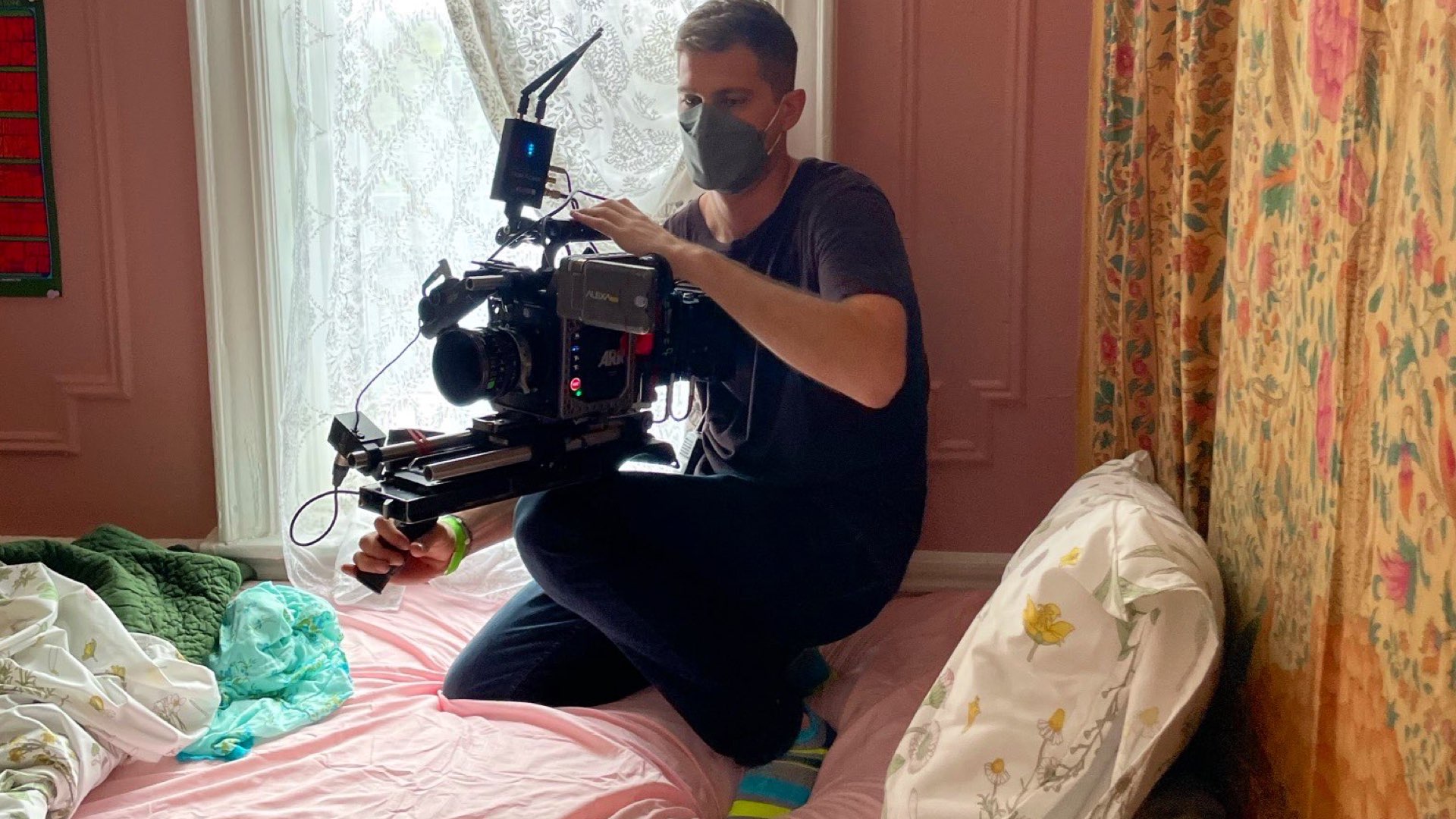
Cinematographer and director John De Menil
John de Menil is the Director of Photography of Late Bloomers, which premiered at SXSW and was directed by Lisa Steen, starring Karen Gillan (Nebula in the MCU). John as a DP has become a film festival darling, with his films premiering at major festivals such as Sundance and SXSW. His most recent credits include DP’ing the Sundance short Sundowners and the SXSW short Stepdaddy, both directed by Steen. John received a bachelor’s degree from NYU’s Tisch School of the Arts, and a MFA in directing from the American Film Institute. Read below what John has to say about filmmaking, cinematography, and storytelling in general.
My job is ultimately about capturing the emotional point of view of the character or the scene.
Filming & directing
YMCinema: Please let us know about yourself (short bio focusing on your filmmaking career).
John: Hello My name is John De Menil. I’m a cinematographer and director based in LA. I grew up in New York City, and I first became inspired by cameras because of my dad, who always carries one on his shoulder. I started out in the industry as an assistant to producer Chris Meledandri, who taught me so much about visual storytelling and who remains a generous mentor. At the same time, I was shooting short films for friends on the weekends and figuring out more about my own personal style. In 2014 I got my Master’s degree from the American Film Institute in directing, and since then I’ve split my time as a cinematographer and director mostly on narrative shorts and features.
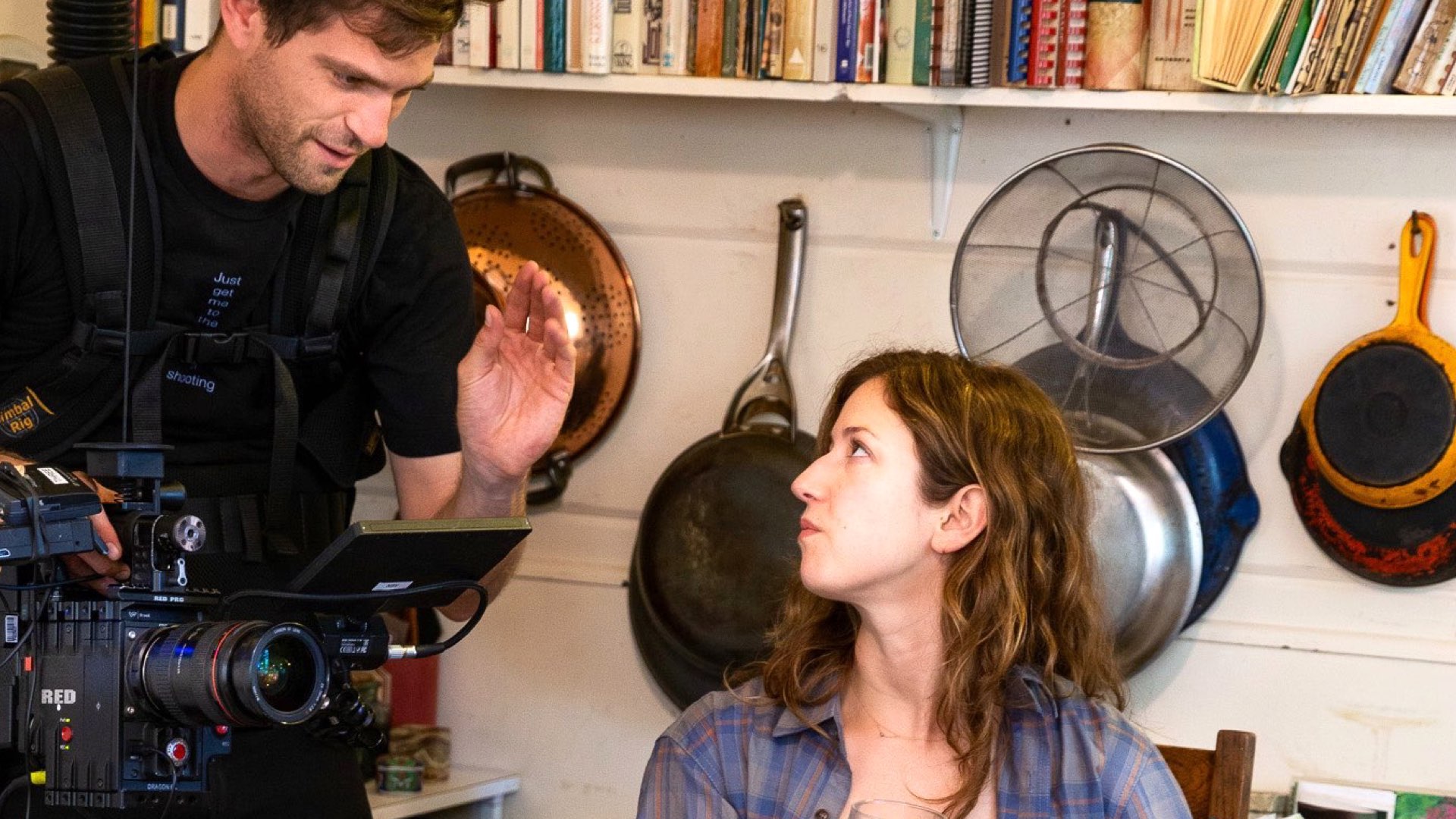
I first became inspired by cameras because of my dad, who always carries one on his shoulder.
Making it into the festivals
YMCinema: Name some interesting projects you took part in.
John: The collaborations I’ve had with director Lisa Steen and writer Anna Greenfield have created some of the work that I’m most proud of. We met in 2016 and over the next few years, we made a number of shorts together. In 2019, two of our shorts played major festivals – Sundowners at Sundance and Stepdaddy at SXSW – and this past year we shot our first feature together, Late Bloomers, which premiered at SXSW. Lisa and Anna are so fun to work with and I’m grateful for the creative partnership we’ve built. They really know how to inspire collaborators with their vision and the genuine sense of discovery they bring to the process.
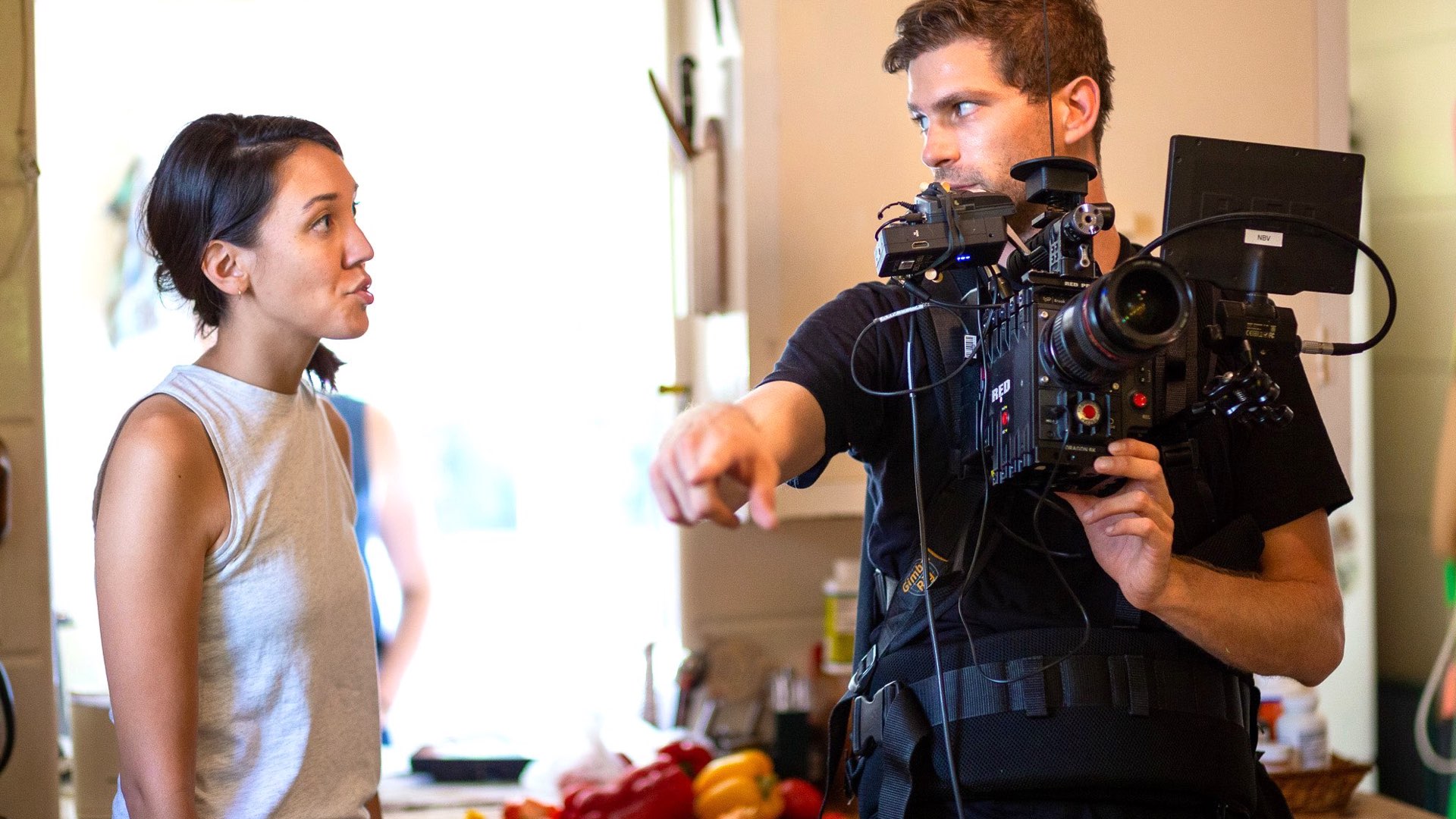
We’re in an age where a camera doesn’t have to be built in the traditional shape of a film camera, so I like to take advantage of that when the situation calls for it. But at the same time, I’ll always suggest shooting film at least once on every project.
The chosen cameras
YMCinema; Which cameras do you prefer to use and why? Elaborate on the process of choosing the right camera for the project.
John: Finding the right camera for a project is more practical than creative for me. With the modern digital workflow, it’s really possible to achieve so many creative looks all with the same capture device. So I tend to start with pragmatic concerns like how big our crew is, how small we need the camera to be for location shooting, how much handheld there is, and what our lighting capabilities will be. I’ve been really impressed with Sony cameras and how they perform in low-light or high-ISO situations. We’re in an age where a camera doesn’t have to be built in the traditional shape of a film camera, so I like to take advantage of that when the situation calls for it. But at the same time, I’ll always suggest shooting film at least once on every project.
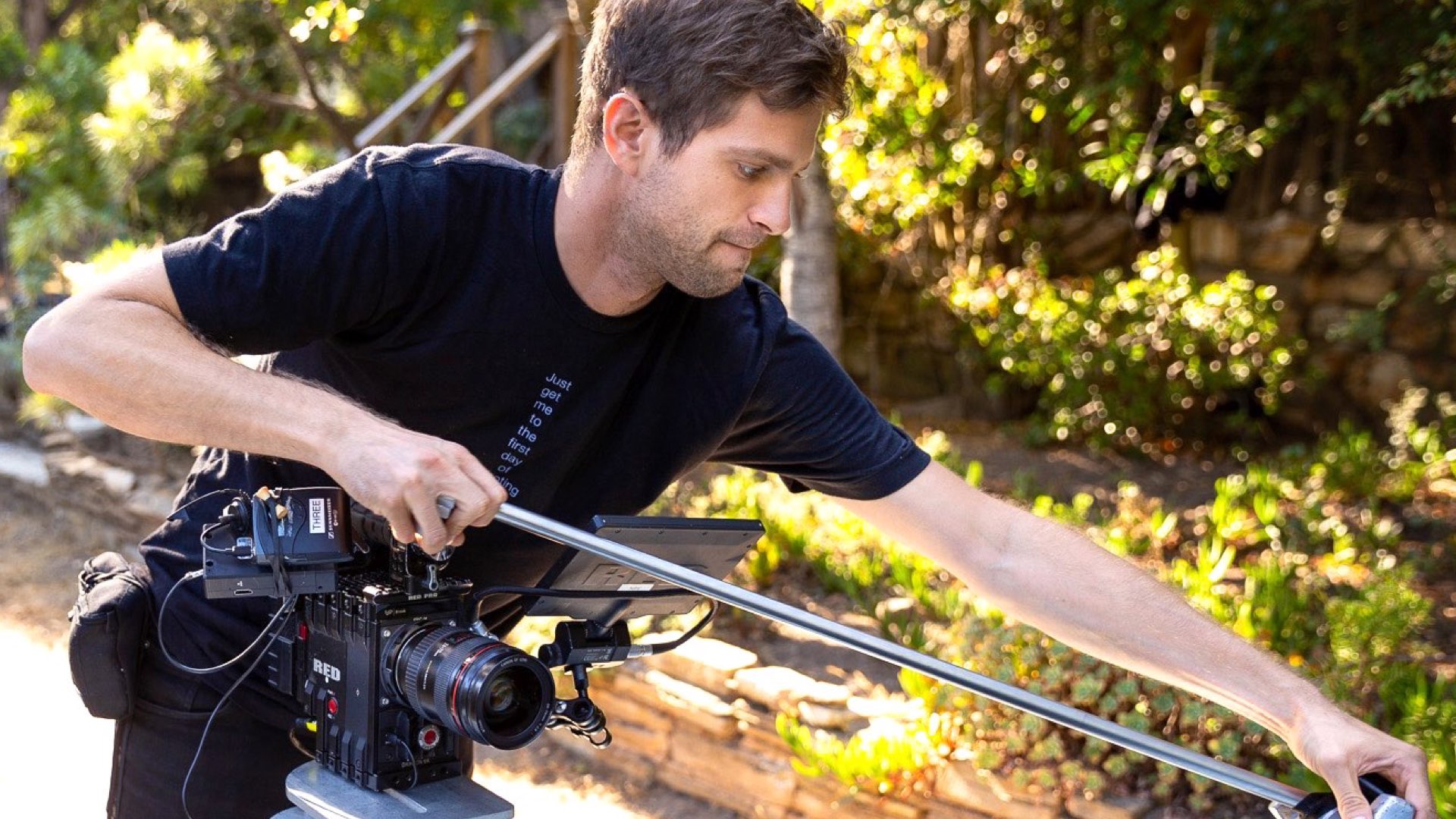
The chosen lenses
YMCinema: Which lenses do you prefer to use and why? Elaborate on the process of choosing the right glass for the project.
John: Testing lenses is one of my favorite parts of the pre-production process. Lenses can be the biggest creative decision we make in the camera department, and it’s a decision that ends up affecting all the other departments as well. Each lens set is completely different; they have their own quirks and convey a distinct emotional feeling when you look through them. On Late Bloomers, we were lucky to work with Panavision in New York. They really understood the project on a creative level first, then gave us a number of sets to test. We ended up using a set of vintage Super Speed lenses that had a softness to them, which was perfect for the tone of the film. They had a dreamy quality without feeling too impressionistic and each lens had a subtle range of “looks” depending on the aperture.
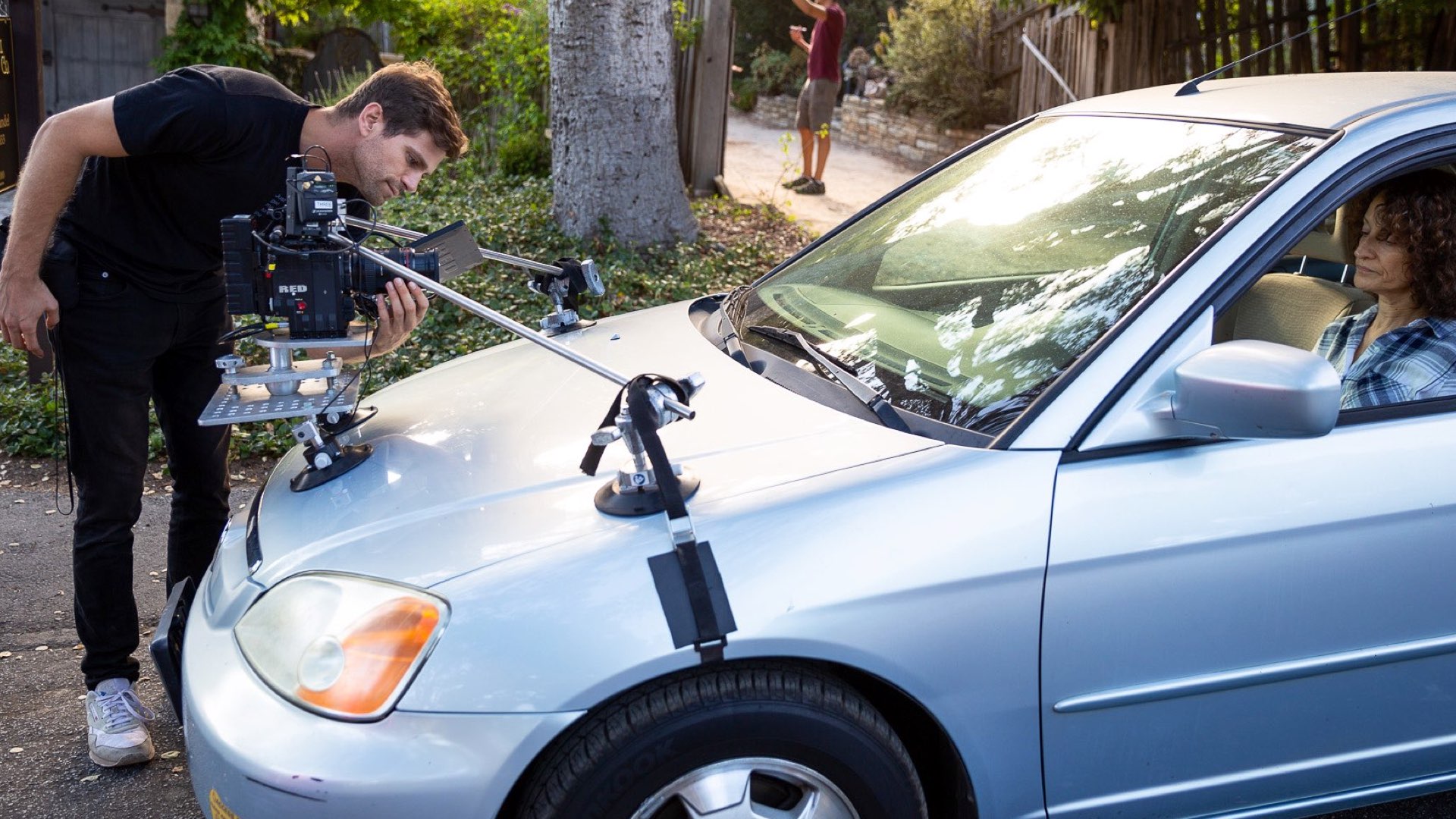
Testing lenses is one of my favorite parts of the pre-production process. Lenses can be the biggest creative decision we make in the camera department.
The main challenges
YMCinema: What are the main challenges of your profession? How do you overcome those challenges?
John: For me, the biggest challenge of cinematography is keeping perspective. My job is ultimately about capturing the emotional point of view of the character or the scene. It’s so easy to get tunnel vision when imagining a shot and forget how it works in tandem with all the other aspects of the film. Time is also always a challenge, and there’s a huge amount of creativity that goes into working with the AD to manage your workflow across a day. But time is everyone’s enemy, so maybe that goes without saying.
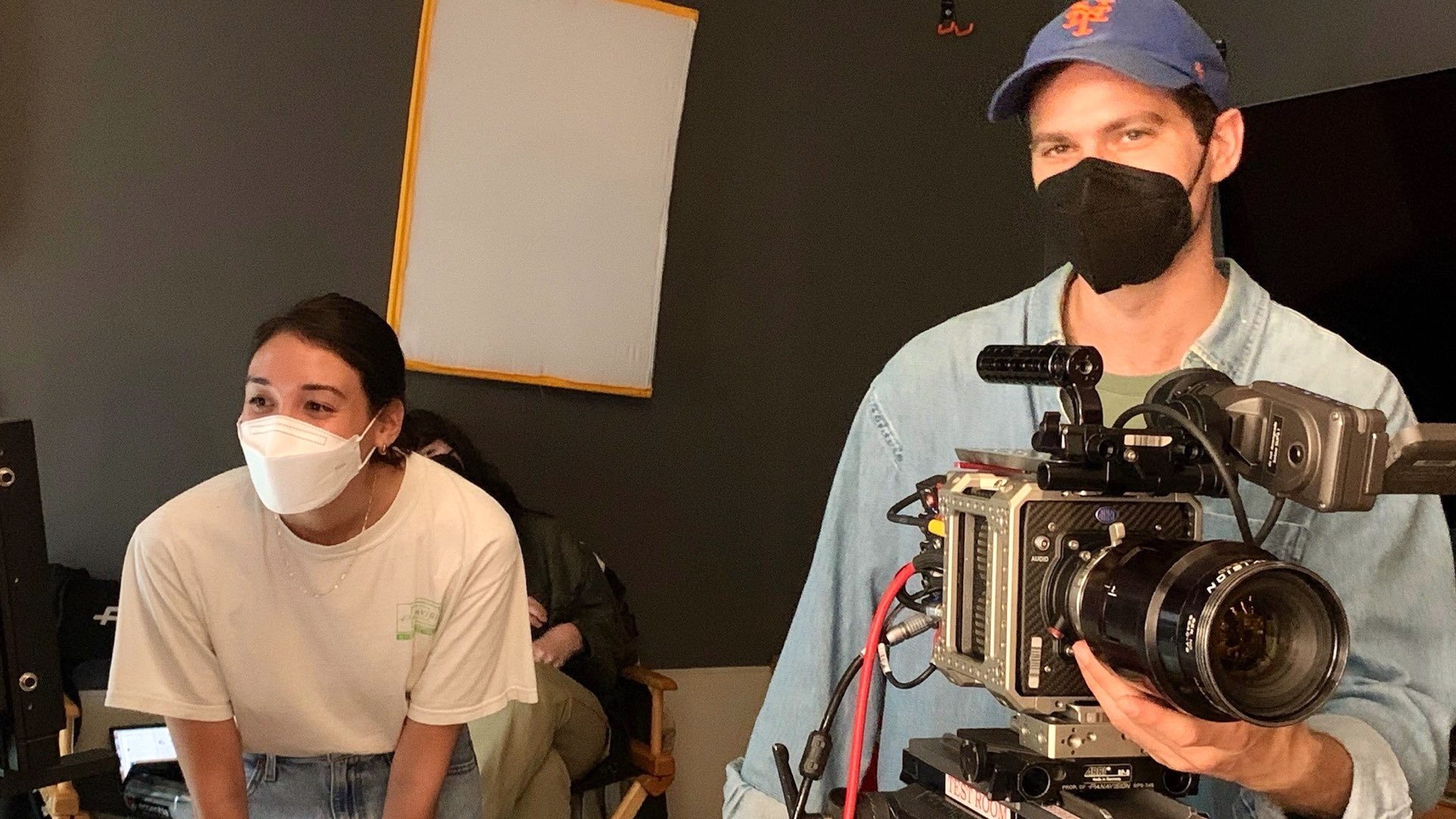
I think there’s a festival for every film, and part of the slog of submissions is realizing that the one you want to get into and the one that will best showcase your film might be different festivals.
Tips & tricks
YMCinema: Please elaborate on tips & tricks regarding sending films to major festivals. How do you ‘convince’ an acclaimed film festival to watch your film, as there are more than 10,000 applicants?
John: I’m far from the best person to answer this question, but I think you’ve just got to focus on the work and let the film speak for itself. I think there’s a festival for every film, and part of the slog of submissions is realizing that the one you want to get into and the one that will best showcase your film might be different festivals.
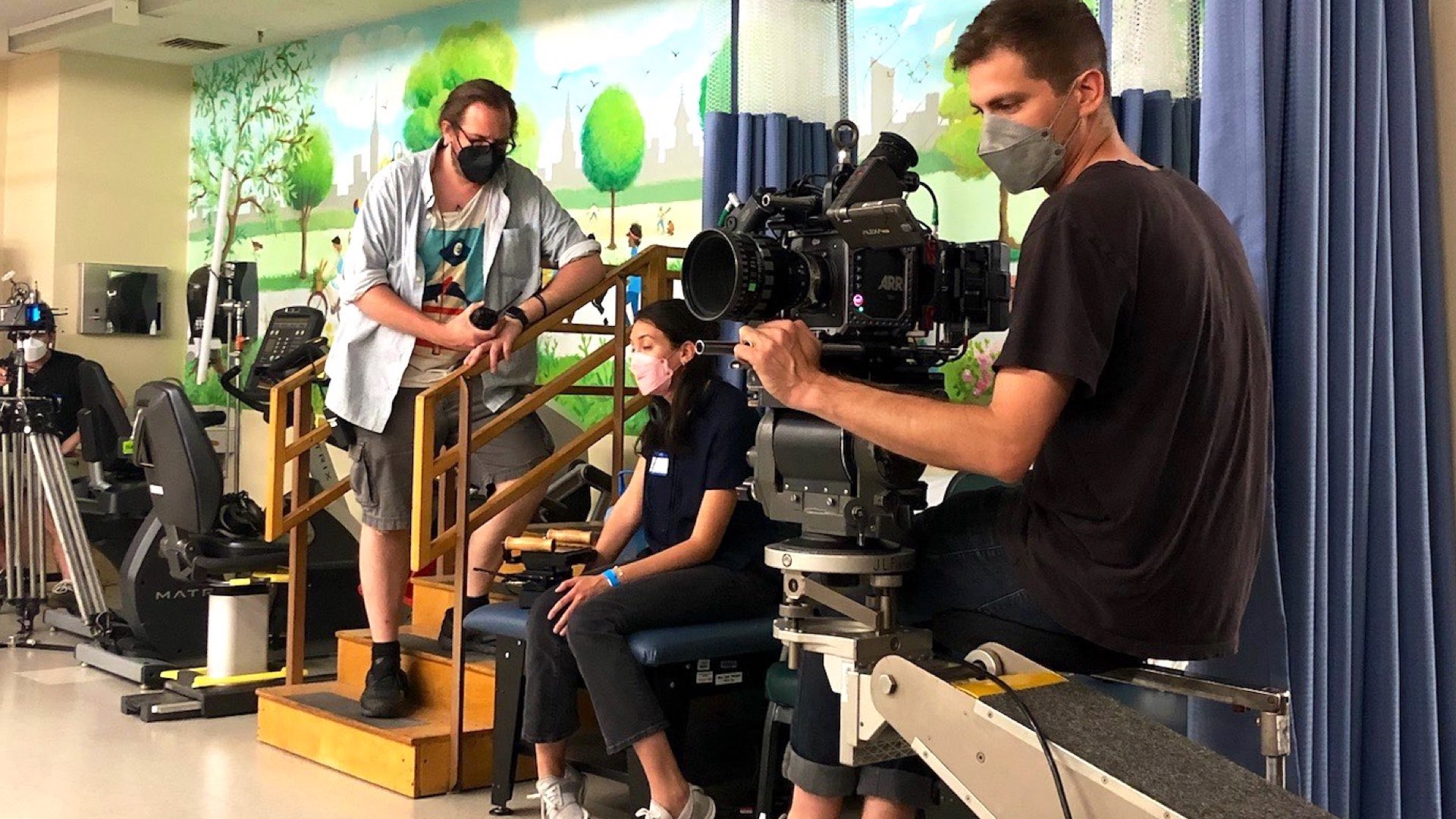
I guess the part of the process I dislike the most is finishing something, ending a job, and saying goodbye to all the collaborators, it’s always bittersweet.
Pros and cons
YMCinema: Name a few things you like the most about being a DP. Also, name a few things you very much dislike about your profession.
John: The thing I love most about being a DP is operating the camera, being part of the scene in that way, having this very intimate relation to the actors and the reality they create. If I’m in a movie, then there’s really nothing that I dislike. I try to embrace anything that’s a challenge or seems like a problem, try to use it to my advantage, and find a way for it to underscore what we’re doing in the scene. I guess the part of the process I dislike the most is finishing something, ending a job, and saying goodbye to all the collaborators, it’s always bittersweet.
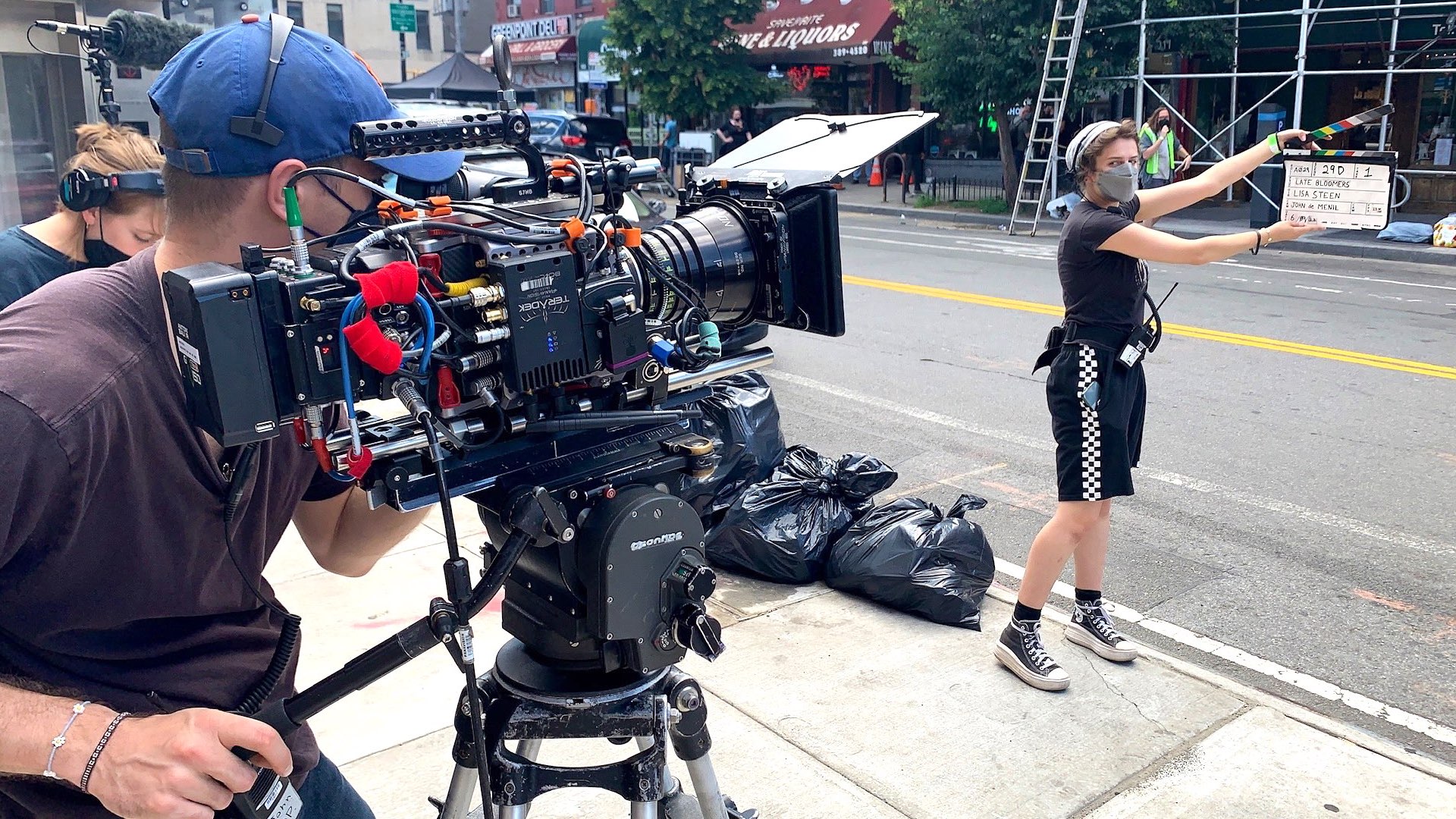
Always try to empathize with your characters, not judge them.
Final thoughts
YMCinema: Any advice for junior DPs? Talk freely.
John: Just be kind to others and to yourself. And always try to empathize with your characters, not judge them. Approaching the characters with the same love and respect you’d give a non-fictional person is the key.
YMCinema encourages cinematographers, editors, and content creators to reach out and tell their stories, insights, tips, and thoughts, in order to educate and inspire others. Would you like to get featured? Email us: yossy [at] ymcinema.com

